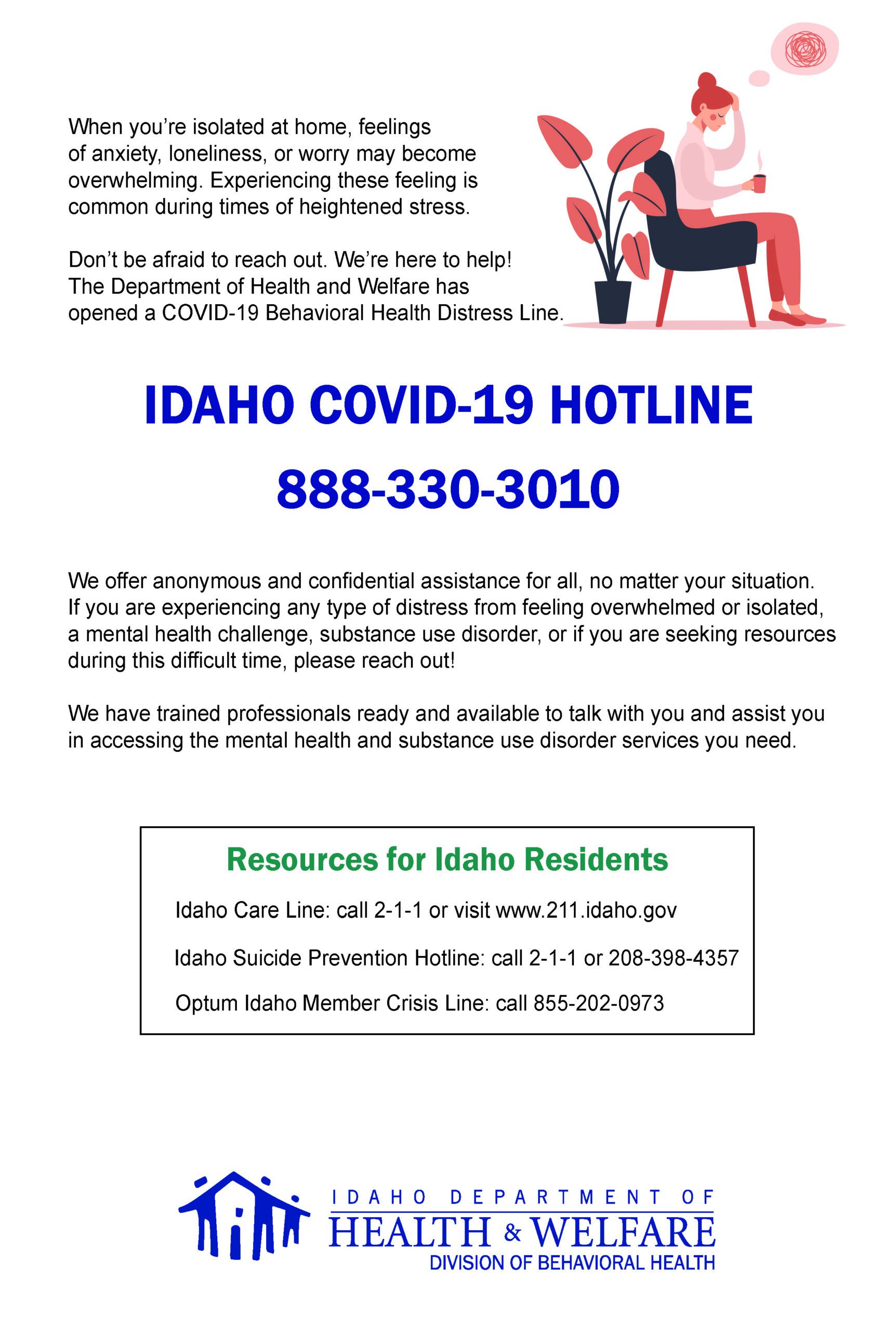 In light of the current ongoing pandemic, there have been many recent life altering changes that have caused an increase in stress for all of us, including the concept of social distancing. Day in and day out, we hear ever changing information about COVID-19, and how it is affecting our communities and the ways in which we function on a daily basis.
In light of the current ongoing pandemic, there have been many recent life altering changes that have caused an increase in stress for all of us, including the concept of social distancing. Day in and day out, we hear ever changing information about COVID-19, and how it is affecting our communities and the ways in which we function on a daily basis.
Though social media can be a helpful tool in communication, it can also generate misinformation. This in turn creates an increase in stress, as well as the ways in which we cope with stress which are different for everyone. Adverse reactions, either behavioral or psychological in nature, are common and may include worries or fear about your own personal health. Other concerns may include the health of your loved ones, difficulties with being able to sleep or with concentration, chronic health problems worsening, change in your sleep or eating patterns, an overall lack of energy, possibly increasing the use of alcohol and tobacco. How we respond to the current outbreak of the Coronavirus is an important factor in helping us to be able to reduce stress.
In being able to help reduce stress, it is important to first and foremost take care of yourself! If you don’t take care of yourself, it is next to impossible to fully care for someone else. We hear information all day long whether it be from the news and/or other types of social media; therefore it is important to take breaks from social media and other news outlets. This is also a good time to start engaging in activities that you enjoy, or haven’t been able to do in quite a while. Try building on things that already make you happy. Though we are self- isolating in our homes, stay in touch with friends and family via phone or other types of social media you may use. Some of us may be working from home, and sticking to your usual morning routines can help to create some normalcy during this time of uncertainty. Also maintaining a sense of optimism and hope is helpful.
We are full of uncertainty during this time, and feelings of being out of control can increase stress. Trying to identify things in your life that you do have control over is helpful, such as getting ready in the mornings as you would any other day as a daily routine. The most important thing is start making plans for things you are going to do once we are safe to carry on life as we did prior to COVID-19. This in turn helps create a sense of optimism and hope!
If being isolated at home, your feelings of anxiety, loneliness, or worry become overwhelming; don’t be afraid to reach out. The Department of Health and Welfare has opened a COVID-19 Behavioral Health Distress Line. The Idaho COVID-19 Hotline is 888-330-3010 and they are offering anonymous and confidential assistance for all, no matter your situation.
~Erin Massey, LCSW, Clearwater Valley Hospital and Clinics

